Nausea
How to submit an article:
- Registered users can submit any published journal article that has a unique DOI (Digital Object Identifier) name or link to Research Hub.
- For example, you can paste the full DOI link:
https://doi.org/10.1109/5.771073or just the DOI name:10.1109/5.771073into the field above and click submit. - The person who is first to submit a valid article to Research Hub will forever be credited for it, and every article submission earns you +6 Research Points.
Related Topics
Published research studies are articles that present the findings of original research that has undergone a peer-review process and has been made publicly available in scholarly journals, books or other media.

Acupuncture for the prevention of chemotherapy‐induced nausea and vomiting in cancer patients: A systematic review and meta‐analysis
2023 May 24 Cancer Medicine Yan Y, López‐Alcalde J, Zhang L, Siebenhüner AR, Witt CM, Barth J
Acupuncture, when added to usual care, may increase the complete control of chemotherapy-induced acute vomiting and delayed vomiting compared to usual care alone. However, the certainty of evidence was generally low or very low, and well-designed randomized controlled trials with larger sample sizes and standardized treatment regimens are needed to draw more definitive conclusions.
Systematic Review Chemotherapy-Induced Nausea and Vomiting Acupuncture
Acupuncture for cancer-related conditions: An overview of systematic reviews
2022 Nov Phytomedicine Zhang X, Hou W, Pu F, Wang X, Wang Y, Yang M, et al.
Systematic Review Cancer-related conditions AcupunctureAcupuncture shows positive effects on cancer-related issues; research calls for further exploration of acupuncture's efficacy and safety, especially for conditions like depression, offering further potential support for cancer survivors
Acupuncture in the Prevention of Chemotherapy-induced Nausea and Vomiting: A Meta-analysis of Randomized Controlled Studies
2022 Oct 24 Future Integrative Medicine Liu X, Zhao J, Liu J, Fan H, Guo N, Du Z, et al.
Combined acupuncture prophylaxis was found to be significantly better than other chemotherapy regimens in comparison with conventional chemotherapy regimens, reducing the risk and odds of CINV. Additionally, acupuncture was effective in preventing side effects such as loss of appetite, constipation, and diarrhea. The findings suggest that acupuncture prevention could be valuable in reducing the incidence of CINV and warrants further research trials and clinical application.
Meta-Analysis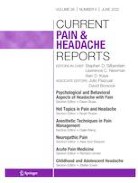
Acupuncture and Postoperative Pain Reduction
2022 Apr 28 Current Pain and Headache Reports Shah S, Godhardt L, Spofford C
Postoperative PainAcupuncture is a low-risk method that has the potential to enhance perioperative analgesia, decrease opioid requirement, and reduce unwanted side effects of anesthesia, surgery, and opioid administration such as nausea/vomiting.
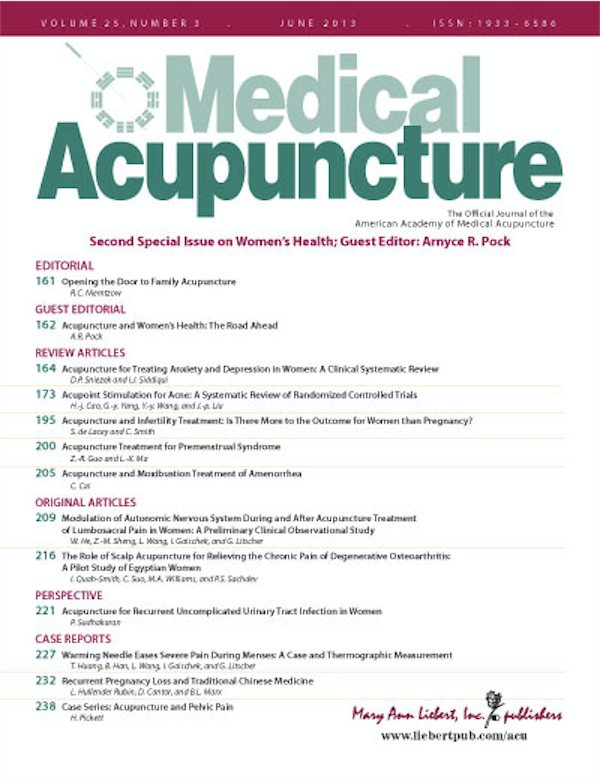
Efficacy of Press Needle at PC6 Neiguan and ST36 Zusanli as Adjuvant Therapy in Reducing Symptoms of Chemotherapy-Induced Nausea and Vomiting in Pediatric Cancer Patients Undergoing Chemotherapy
2022 Apr 01 Medical Acupuncture Bintoro DA, Nareswari I, Andriastuti M
Press needle acupuncture is able to reduce the Rhodes index of nausea, vomiting, and retching (RINVR) score and can be applied to pediatric patients because of its minimal side effects, but further research is needed to determine the appropriate treatment time.
Randomised Controlled Trial Children's Health Acupuncture Chemotherapy-Induced Nausea and Vomiting Vomiting NauseaResearch insights are moderated by the Research Hub team and offer an at-a-glance overview of interesting research findings.

2022 Phytomedicine
Acupuncture shows positive effects on cancer-related issues; research calls for further exploration of acupuncture's efficacy and safety, especially for conditions like depression, offering further potential support for cancer survivors
Systematic Review Acupuncture Cancer-related conditions
Acupuncture for cancer-related conditions: An overview of systematic reviews
Zhang X, Hou W, Pu F, Wang X, Wang Y, Yang M, et al.

2022 Current Pain and Headache Reports
Acupuncture is a low-risk method that has the potential to enhance perioperative analgesia, decrease opioid requirement, and reduce unwanted side effects of anesthesia, surgery, and opioid administration such as nausea/vomiting.
Postoperative Pain
Acupuncture and Postoperative Pain Reduction
Shah S, Godhardt L, Spofford C

2019 Complementary Therapies in Medicine
Our study found ginger is a promising herbal medicine for health care, which is beneficial for nausea and vomiting, metabolic syndrome and pain.
Systematic Review Ginger Metabolic Syndrome
Ginger for health care: An overview of systematic reviews
Li H, Liu Y, Luo D, Ma Y, Zhang J, Li M, et al.
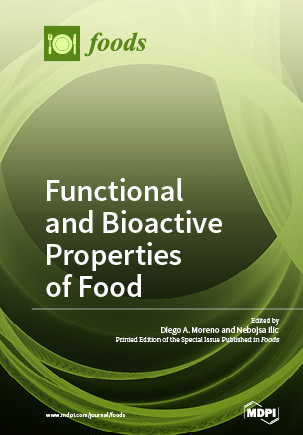
2018 Foods
Ginger emerges as a safe and effective treatment for nausea and vomiting in early pregnancy.
Systematic Review Ginger Morning Sickness
How Safe Is Ginger Rhizome for Decreasing Nausea and Vomiting in Women during Early Pregnancy?
Stanisiere J, Mousset PY, Lafay S

2016 BMC Complementary Medicine and Therapies
Acupoint stimulation shows promise in alleviating nausea and vomiting in pregnancy.
Systematic Review Morning Sickness
Effect of acustimulation on nausea and vomiting and on hyperemesis in pregnancy: a systematic review of Western and Chinese literature
Van den Heuvel, E., Goossens, M., Vanderhaegen, H. et al.
Review Articles
Review articles summarise and critically evaluate the current state of research on a specific topic or field by synthesising multiple primary research studies.

Acupuncture for the prevention of chemotherapy‐induced nausea and vomiting in cancer patients: A systematic review and meta‐analysis
2023 May 24 Cancer Medicine Yan Y, López‐Alcalde J, Zhang L, Siebenhüner AR, Witt CM, Barth J
Acupuncture, when added to usual care, may increase the complete control of chemotherapy-induced acute vomiting and delayed vomiting compared to usual care alone. However, the certainty of evidence was generally low or very low, and well-designed randomized controlled trials with larger sample sizes and standardized treatment regimens are needed to draw more definitive conclusions.
Systematic Review Chemotherapy-Induced Nausea and Vomiting Acupuncture
Acupuncture for cancer-related conditions: An overview of systematic reviews
2022 Nov Phytomedicine Zhang X, Hou W, Pu F, Wang X, Wang Y, Yang M, et al.
Systematic Review Cancer-related conditions AcupunctureAcupuncture shows positive effects on cancer-related issues; research calls for further exploration of acupuncture's efficacy and safety, especially for conditions like depression, offering further potential support for cancer survivors

Acupuncture for Rehabilitation After Total Knee Arthroplasty: A Systematic Review and Meta-Analysis of Randomized Controlled Trials
2021 Jan 18 Frontiers in Medicine Chen Z, Shen Z, Ye X, Xu Y, Liu J, Shi X, et al.
Acupuncture, as a supplementary treatment after TKA, could improve function and reduce nausea/vomiting. However, the effect of acupuncture on pain relief may be mainly achieved within post-operative 48 h, and it had no efficacy in improving range of knee motion. More large-scale and high-quality studies are warranted.
Systematic Review Meta-Analysis Arthoplasty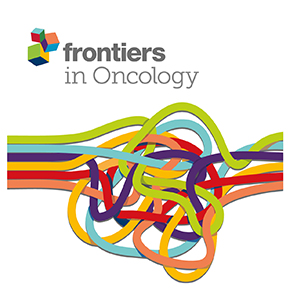
Chinese Herbal Medicine for Reducing Chemotherapy-Associated Side-Effects in Breast Cancer Patients: A Systematic Review and Meta-Analysis
2020 Dec 09 Frontiers in Oncology Li S, So T, Tang G, Tan HY, Wang N, Ng BFL, et al.
The included studies showed unsatisfied quality. Results based on available literature indicated that the adjunctive use of CHM with chemotherapy may reduce the chemotherapeutic agents-associated adverse events, including nausea and vomiting, diarrhea, alopecia, myelosuppression, and impaired immune function. A confident conclusion could not be have due to the lack of large scale and high quality trials.
Systematic Review Meta-Analysis Chemotherapy
Ginger ( Zingiber officinale Rosc.) and its bioactive components are potential resources for health beneficial agents
2020 Sep 20 Phytotherapy Research Zhang M, Zhao R, Wang D, Wang L, Zhang Q, Wei S, et al.
The pharmacological activities of ginger seem to be promising for protecting the gastrointestinal systems, the liver and kidney function, and preventing diabetes, especially for cancer and vomiting/nausea prevention; these effects may be attributed to gingerols, paradols, and shogaols. However, further clinical investigations are necessary to comprehensively evaluate the efficacy and safety of ginger.
Network Pharmacology Review Article GingerClinical Trials
Clinical trials are research studies that involve people and are conducted to evaluate the safety and efficacy of new treatments or interventions, such as drugs, medical devices, or behavioural therapies.

Efficacy of Press Needle at PC6 Neiguan and ST36 Zusanli as Adjuvant Therapy in Reducing Symptoms of Chemotherapy-Induced Nausea and Vomiting in Pediatric Cancer Patients Undergoing Chemotherapy
2022 Apr 01 Medical Acupuncture Bintoro DA, Nareswari I, Andriastuti M
Press needle acupuncture is able to reduce the Rhodes index of nausea, vomiting, and retching (RINVR) score and can be applied to pediatric patients because of its minimal side effects, but further research is needed to determine the appropriate treatment time.
Randomised Controlled Trial Children's Health Acupuncture Chemotherapy-Induced Nausea and Vomiting Vomiting Nausea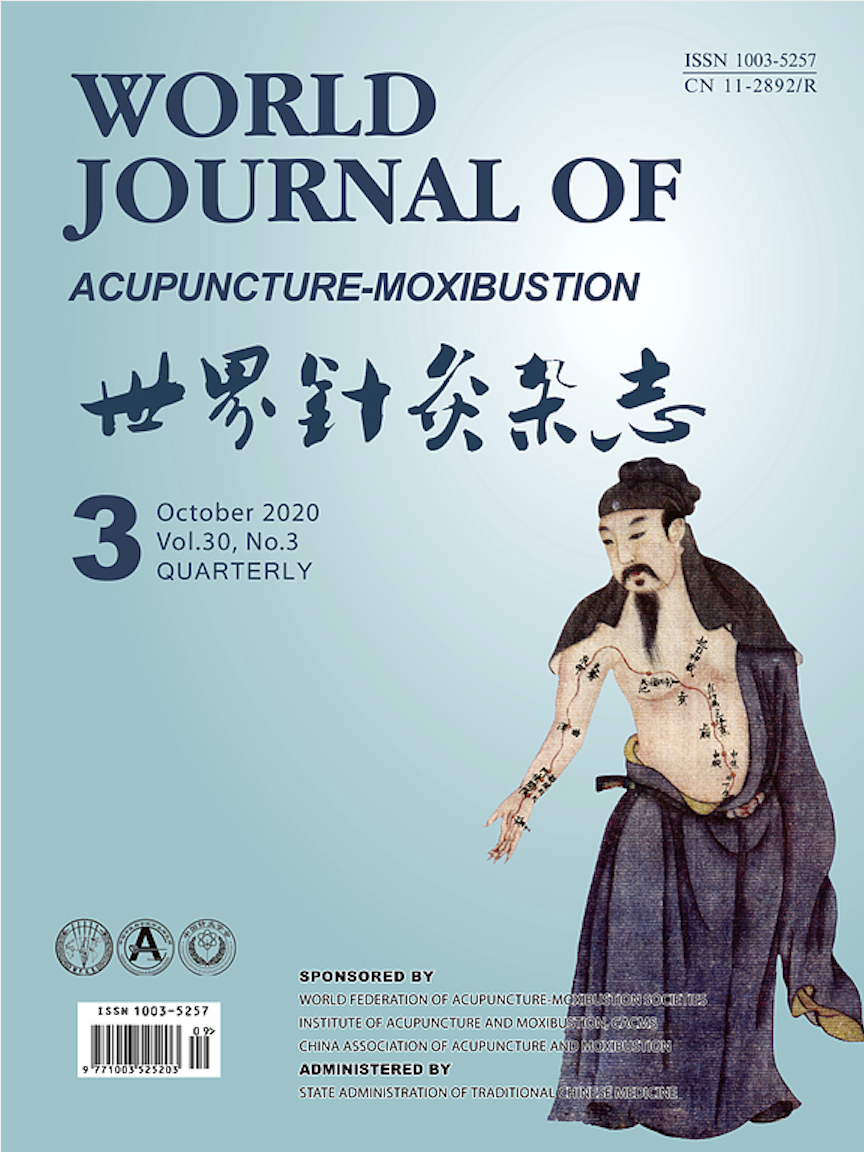
Effect of wrist-ankle acupuncture on postoperative nausea and vomiting undergoing radiofrequency ablation in thyroid nodule: A randomized controlled trial
2020 Oct World Journal of Acupuncture-Moxibustion LI Y, ZHOU N, LIU F, REN H, HAO W
Wrist-ankle acupuncture reduces the intraoperative demand of sufentanil in radiofrequency ablation of thyroid nodule and this therapy is preventive for PONV.
Clinical Study Randomised Controlled Trial Thyroid Nodule Nausea Vomiting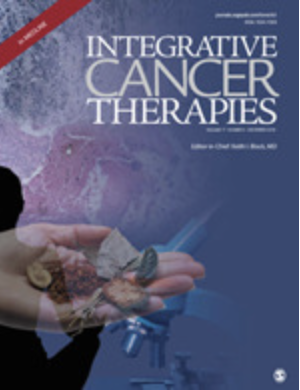
The Effect of Peppermint (Mentha piperita) Extract on the Severity of Nausea, Vomiting and Anorexia in Patients with Breast Cancer Undergoing Chemotherapy: A Randomized Controlled Trial
2020 Jan Integrative Cancer Therapies Jafarimanesh H, Akbari M, Hoseinian R, Zarei M, Harorani M
The study concludes that the use of peppermint as a complementary medicine method may significantly improve the severity of nausea, vomiting, and anorexia in patients with breast cancer undergoing chemotherapy.
Randomised Controlled Trial Nausea Breast Cancer Cancer Treatment Support Peppermint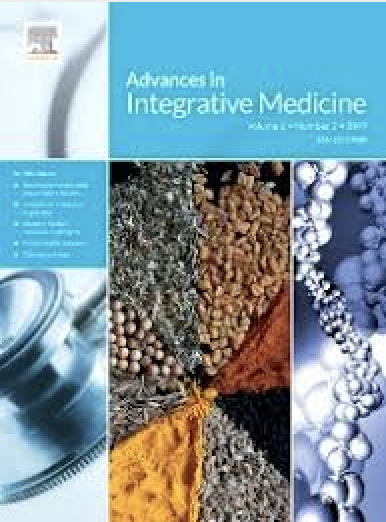
The effect of P6 acupressure on nausea and vomiting of pregnancy: A randomized, single-blind, placebo-controlled trial
2019 Nov 4 Advances in Integrative Medicine Sedigheh Sedigh Mobarakabadi, Samira Shahbazzadegan, Giti Ozgoli
A significant difference was observed between the acupressure and placebo groups in terms of the frequency and severity of nausea but not its duration or the frequency of vomiting after the intervention.
Randomised Controlled Trial
Laser Acupuncture for Relieving Nausea and Vomiting in Pediatric Patients Undergoing Chemotherapy: A Single-Blind Randomized Clinical Trial
2018 Dec 10 Journal of Pediatric Oncology Nursing Varejão CS, Santo FHE
The study concluded that laser acupuncture was effective in relieving nausea within 5 days of chemotherapy and in reducing the number of episodes of vomiting on Days 2 and 3 after chemotherapy.
Randomised Controlled Trial Children's HealthStudy Protocols
Published study protocols are detailed plans that outline the objectives, methodology, statistical analyses, and organisation of a research study that have been made publicly available for others to review and use as a reference.
Presentation Slides

Systematic Review
Acupuncture shows positive effects on cancer-related issues; research calls for further exploration of acupuncture's efficacy and safety, especially for conditions like depression, offering further potential support for cancer survivors
Zhang X, Hou W, Pu F, Wang X, Wang Y, Yang M, Cheng K, Wang Y, Robinson N, Liu J

Acupuncture is a low-risk method that has the potential to enhance perioperative analgesia, decrease opioid requirement, and reduce unwanted side effects of anesthesia, surgery, and opioid administration such as nausea/vomiting.
Shah S, Godhardt L, Spofford C

Systematic Review
Our study found ginger is a promising herbal medicine for health care, which is beneficial for nausea and vomiting, metabolic syndrome and pain.
Li H, Liu Y, Luo D, Ma Y, Zhang J, Li M, Yao L, Shi X, Liu X, Yang K.

Systematic Review
Ginger emerges as a safe and effective treatment for nausea and vomiting in early pregnancy.
Stanisiere J, Mousset PY, Lafay S

Systematic Review
Acupoint stimulation shows promise in alleviating nausea and vomiting in pregnancy.
Van den Heuvel, E., Goossens, M., Vanderhaegen, H. et al.
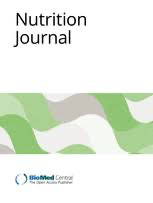
Systematic Review
Ginger could be considered a harmless and possibly effective alternative option for women suffering from nausea and vomiting during pregnancy.
Viljoen, E., Visser, J., Koen, N. et al.
Executive Summary
Write an executive summary in the form of a blog article on the topic of "Research into Chinese medicine treatment for Nausea" summarising the research below and using language that can be easily understood by patients and avoiding medical jargon using a professional and caring tone of voice.
Write an executive summary in the form of a blog article on the topic of "Researched Chinese medicine treatments for Nausea" summarising the research below in an objective and easy to understand way, and using language that can be easily understood by patients. Group the article into Chinese medicine treatments first, followed by nutrition and other treatments. Avoid using medical jargon and use a professional and caring tone of voice.
Write me a concise but easy to understand executive summary on the topic of "Chinese medicine treatments for Nausea" based on the following research that I will give you. Your summary should be 2 paragraphs long in Australian English spelling and include references to the studies.
A Systematic Review published in 2022 in the journal Phytomedicine found that Acupuncture shows positive effects on cancer-related issues; research calls for further exploration of acupuncture's efficacy and safety, especially for conditions like depression, offering further potential support for cancer survivors This review summarizes evidence from 51 systematic reviews on acupuncture for cancer-related conditions. Acupuncture was found to have positive effects on various conditions such as cancer-related pain, fatigue, insomnia, nausea, and more. The methodological quality of the reviews was generally low, and some biases were identified. Acupuncture was considered safe, with only mild adverse events reported. In clinical practice, acupuncture can be a beneficial option for cancer survivors for certain conditions.
A published in 2022 in the journal Current Pain and Headache Reports found that Acupuncture is a low-risk method that has the potential to enhance perioperative analgesia, decrease opioid requirement, and reduce unwanted side effects of anesthesia, surgery, and opioid administration such as nausea/vomiting. Patients undergoing abdominal, spine/neuro, and gynecologic pelvic surgery generally benefit from acupuncture. Out of the various acupuncture techniques, electroacupuncture, transcutaneous electric acupoint stimulation, and traditional total body acupuncture seem to be most promising as adjuncts to multimodal perioperative analgesia. Benefits include improved analgesia and/or reduced narcotic requirements, decrease in PONV, and shorter time to return of bowel function.
A Systematic Review published in 2019 in the journal Complementary Therapies in Medicine found that Our study found ginger is a promising herbal medicine for health care, which is beneficial for nausea and vomiting, metabolic syndrome and pain. In our overview, most of systematic reviews suggest ginger is a promising herbal medicine for health care, which is beneficial for nausea and vomiting, metabolic syndrome and pain. However, considering the limited quality of included evidence and heterogeneity of different clinical trials, more well-design studies are required to confirm the conclusion further.
A Systematic Review published in 2018 in the journal Foods found that Ginger emerges as a safe and effective treatment for nausea and vomiting in early pregnancy. Nausea and vomiting of pregnancy (NVP) affect 7 in 10 pregnant women, significantly impacting their quality of life. Concerns about the safety of traditional antiemetic drugs have led to the consideration of natural options like ginger, which has shown favorable risk/benefit ratios and strong evidence. Ginger supplements with 0.5 to 2 g of root per day can effectively alleviate NVP. However, ensuring ginger quality is crucial, especially in monitoring methyleugenol concentration for potential toxicity. The variability in gingerol composition among supplements underscores the importance of stringent quality control measures. Studies have not found significant reproductive or developmental risks associated with ginger use during pregnancy, but medical supervision and case-specific evaluation are essential. Further research on ginger's effect on platelet aggregation in pregnant women is recommended.
A Systematic Review published in 2016 in the journal BMC Complementary Medicine and Therapies found that Acupoint stimulation shows promise in alleviating nausea and vomiting in pregnancy. This review assesses acupoint stimulation techniques for treating nausea and vomiting in pregnancy (NVP) and hyperemesis gravidarum (HG). Of 29 studies, 20 were included in quantitative analyses. Acupressure, acupuncture, auricular acupressure, and moxibustion were examined. While acupressure showed a 41% reduction in symptom severity, acupuncture had double the effect of control groups, and moxibustion improved symptoms by 65%. Continuous outcome measures did not show significant relief. Adverse events were minimal. The study calls for more rigorous trials, emphasizing the need for blinding and standardizing treatment protocols for conclusive results on acupoint stimulation's efficacy in NVP and HG.
A Systematic Review published in 2014 in the journal Nutrition Journal found that Ginger could be considered a harmless and possibly effective alternative option for women suffering from nausea and vomiting during pregnancy. This review suggests potential benefits of ginger in reducing nausea symptoms in pregnancy (bearing in mind the limited number of studies, variable outcome reporting and low quality of evidence). Ginger did not significantly affect vomiting episodes, nor pose a risk for side-effects or adverse events during pregnancy. Based on evidence from this systematic review, ginger could be considered a harmless and possibly effective alternative option for women suffering from nausea and vomiting during pregnancy.
Moderation Tools
Topic
Sign In
Users not signed in are limited to viewing the 5 most recent items of content.